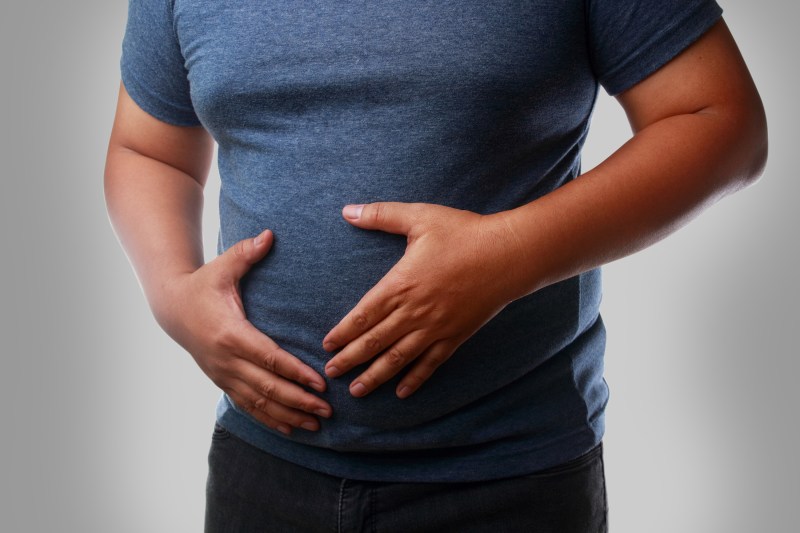
There’s no question the holiday season is one of the most challenging times of the year to commit to a weight loss plan. The popular keto diet, or ketogenic diet, is a great way to help shed some pounds, cutting out excess sugar and carbohydrates from the diet. This high-fat, low-carb diet cuts carbohydrates so low (often under 50 grams per day) that the body switches to running on fat for fuel. In turn, the body enters a state of ketosis, which can offer tons of benefits, from improved energy levels to weight loss.
While this all sounds great, sticking to a keto diet during the holidays is sometimes extra challenging. With sugary treats and holiday foods all around us, many people find themselves going in and out of ketosis often. As a result, some find themselves battling uncomfortable keto flu symptoms. But what is the keto flu? Below, we’ll dive into this diet phenomenon and how to reduce these symptoms.

What is keto flu?
The “keto flu” refers to a group of flu-like symptoms when a person first starts a ketogenic diet. While this illness is not really a flu, it’s been coined “keto flu” as the symptoms often overlap with common flu symptoms. If you’ve ever wondered, “why do I feel sick coming off keto?” the answer is most likely in this phenomenon. Keto flu symptoms often present as the body shifts away from burning carbs for fuel, transitioning back to fat as a primary fuel source. As the carbohydrates stored as glucose deplete, you may experience these “withdrawal” symptoms from carbs that make up the keto flu.
Keto flu symptoms may present differently in every person but can include headaches, nausea, diarrhea, dizziness, fatigue, and a general unwell feeling. Some people also experience gastrointestinal symptoms and discomfort during the transition period between carbs and fat.
What are the first signs of ketosis?
As the body enters a state of ketosis, you may experience a few signs and clues that help you know you’ve achieved ketosis. A boost in energy levels is one common sign caused by the production of ketones in the blood. You may also notice bad breath or a reduced appetite as you enter into a deep state of ketosis. Many avid keto dieters track their blood ketone levels using a blood ketone meter. However, this is optional. As you begin to adjust to a keto diet, you’ll likely be able to tell based on your symptoms alone.
Paying attention to the signs of ketosis can help explain your keto flu symptoms and assure you there is no cause for alarm. However, if your keto flu symptoms last over ten days, we recommend talking with your healthcare provider.
How long does the keto flu last?
The keto flu usually only happens during the initial transition phase. Once you’re acclimated to the keto diet, the flu symptoms usually disappear. In most cases, keto flu symptoms usually last between a few days and a week. Each person is affected differently by the keto flu, with some people experiencing no keto flu symptoms at all. Going in and out of ketosis too often can leave you more susceptible to repeat keto flu symptoms. For this reason, you may find yourself experiencing more keto flu symptoms if you fall off-track from the diet during holidays like Thanksgiving or Christmas.

Managing keto flu symptoms
Although the keto flu can certainly be unpleasant, there are some ways you can help mitigate symptoms and feel better during the transition period. Of course, the easiest way to avoid keto flu symptoms is to avoid going back and forth between a carb-heavy diet and a keto diet.
Stay hydrated
Drinking enough water on a keto diet is vital to success. Ketosis causes the body to retain less water, which means you may experience excessive urination for a few days as you flush out the carbs from your system. As you flush out lots of water, remember that you’re also losing important nutrients alongside the water. Drinking extra water and water with electrolytes can help replenish the lost sodium, potassium, and magnesium that your need body needs. This can improve how you feel during the transition into ketosis.
Gradually reduce carbs
Transitioning from a high-carb diet to one so low in carbs can be a shock to your system. If you’ve been consuming a diet rich in carbs, it may be helpful to reduce your carbohydrate intake gradually over the course of a few days to a week. Instead of rushing into a traditional ketogenic diet, starting off with a low-carb diet can give your digestive system a chance to adjust instead of making drastic changes.
Try exercising
If you’re not feeling well, there’s a good chance you don’t feel like hitting up the gym. However, light exercise can actually make you feel better if you are experiencing keto flu symptoms. Light exercise may look like a casual walk, but practicing gentle yoga exercises can help boost your mood by producing endorphins.



